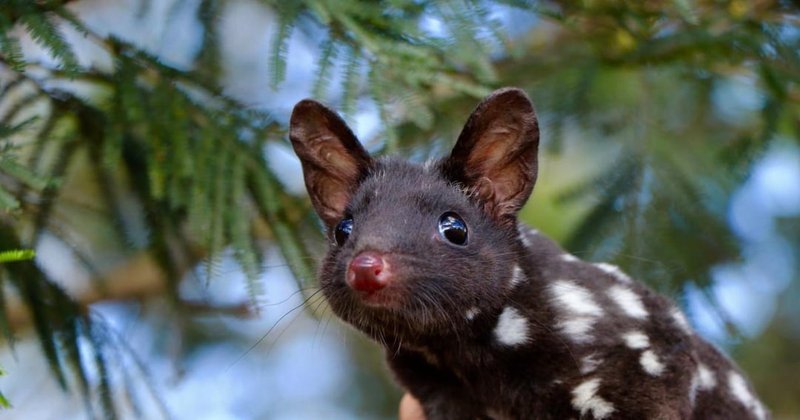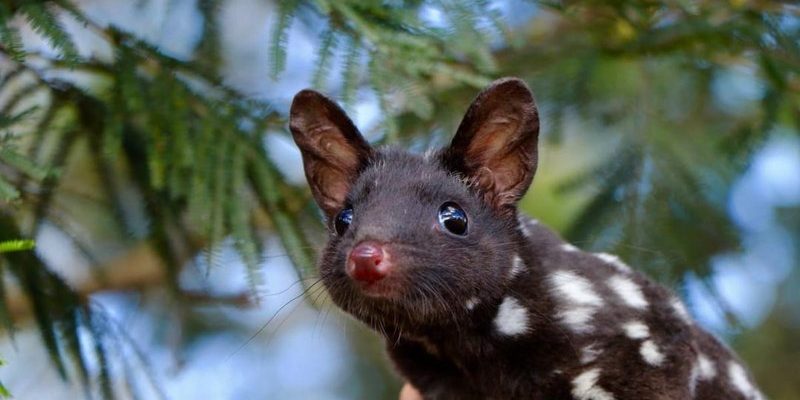
Imagine a quoll as a tiny, spotted predator on a mission, darting through its habitat in search of food. Just like a detective, it uses its senses and quick thinking to navigate the world around it. From solving problems to adapting to different environments, quolls showcase a range of abilities that highlight their intelligence. Let’s dive into what makes these creatures tick and explore their cognitive world.
What Are Quolls? A Brief Overview
Quolls are small, nocturnal marsupials from the family Dasyuridae. Think of them as Australia’s version of a weasel or a ferret, but with more flair. These critters come in a few species, including the Eastern quoll and the Spotted-tailed quoll. They typically have a distinctive coat, often spotted, which helps them blend into their natural habitat of forests, grasslands, and even caves.
These animals are primarily carnivorous, munching on insects, small mammals, and even birds. Quolls are known for their keen senses—especially their acute sense of smell—which they use to hunt and forage at night. Their diet and hunting techniques are closely tied to their cognitive abilities, showcasing how intelligence plays a vital role in survival.
But here’s the thing: intelligence in animals isn’t just about brain size. It’s about how they behave and adapt to their environments. Quolls demonstrate an interesting mix of learned behaviors and instinctual hunting skills that make them quite the clever little hunters.
Cognitive Abilities of Quolls
Quolls exhibit a variety of cognitive abilities that showcase their intelligence. They use both instinct and learned behaviors to navigate their environments. One of the most notable aspects of quoll intelligence is their problem-solving skills. When faced with obstacles, such as finding food or avoiding predators, quolls have shown remarkable adaptability.
For example, researchers have observed how quolls can figure out how to open simple containers to access food. This kind of behavior points to a level of cognitive complexity that’s often associated with more traditionally “intelligent” animals. It’s like watching a toddler learn how to open a jar of cookies—there’s curiosity, trial and error, and finally, success.
Another fascinating aspect is their memory. Quolls can remember the locations of their food sources, which helps them return to the same spots for meals. This ability to recall past experiences and learn from them is a hallmark of intelligence in many species, including humans.
Social Behavior and Interaction
Quolls are not typically social animals, but they do exhibit interesting behaviors when it comes to interacting with others. They tend to be solitary, with males and females coming together primarily during the breeding season. However, they communicate through vocalizations and scent marking, which indicates a level of social awareness.
You might be wondering how this affects their intelligence. Well, social animals often display more complex behaviors due to the need to navigate relationships and hierarchies. While quolls might not develop intricate social structures like dolphins or elephants, their ability to communicate and interact with other quolls shows a different side of their cognitive skills.
In addition, during the breeding season, male quolls may engage in competitive behaviors, such as chasing each other or marking territory. This competition can lead to quick learning and adaptation, pushing them to become even more resourceful in their search for mates.
Learning and Adaptation
When it comes to learning, quolls are surprisingly quick on their feet. They can adapt to changes in their environment, like shifting from hunting in their natural habitats to foraging in urban areas. As human activities encroach upon their land, quolls have shown the ability to modify their behaviors to survive.
For instance, some quolls are now spotted foraging in suburban gardens, taking advantage of human food sources. This learning process is essential for their survival, showcasing their intelligence in adapting to new situations. It’s a bit like a kid learning to ride a bike in a crowded park: they’ve got to be aware of their surroundings and adapt quickly!
Research has pointed out that when quolls are exposed to new challenges, like navigating mazes or finding hidden food, they often learn from previous experiences. This flexibility is a sign of a smart animal that knows how to think on its feet.
Quoll Conservation and Its Impact on Behavior
Understanding the intelligence of quolls also plays a crucial role in conservation efforts. As their habitats decline due to urbanization and climate change, it’s important to recognize how their behavior is affected. For instance, smart species often have an easier time adapting to new environments, which can be vital for survival.
Conservationists are looking into creating safe environments where quolls can thrive. This includes designing wildlife corridors that allow them to move freely without the dangers of roads and urban areas. By protecting their habitats and ensuring they can learn and adapt, we help preserve their cognitive abilities and behaviors.
If quolls can adapt and thrive in changing environments, it not only benefits them but also enriches the ecosystems they inhabit. After all, intelligent creatures like quolls play a vital role in maintaining balance in their ecosystems, controlling pest populations, and supporting biodiversity.
So, how smart is a quoll? The answer is quite smart! From their problem-solving abilities and sharp memories to their adaptability in changing environments, these little marsupials are more than just cute faces. They showcase a range of cognitive abilities that highlight their intelligence, proving that even the smallest creatures have a lot to teach us.
Understanding quolls and their behaviors not only enriches our knowledge of animal intelligence but also emphasizes the importance of conservation. By learning more about these fascinating creatures, we can help protect their habitats and ensure that they continue to thrive in the wild. The next time you think about clever animals, don’t forget to include the quoll—they might just surprise you with their hidden genius!

